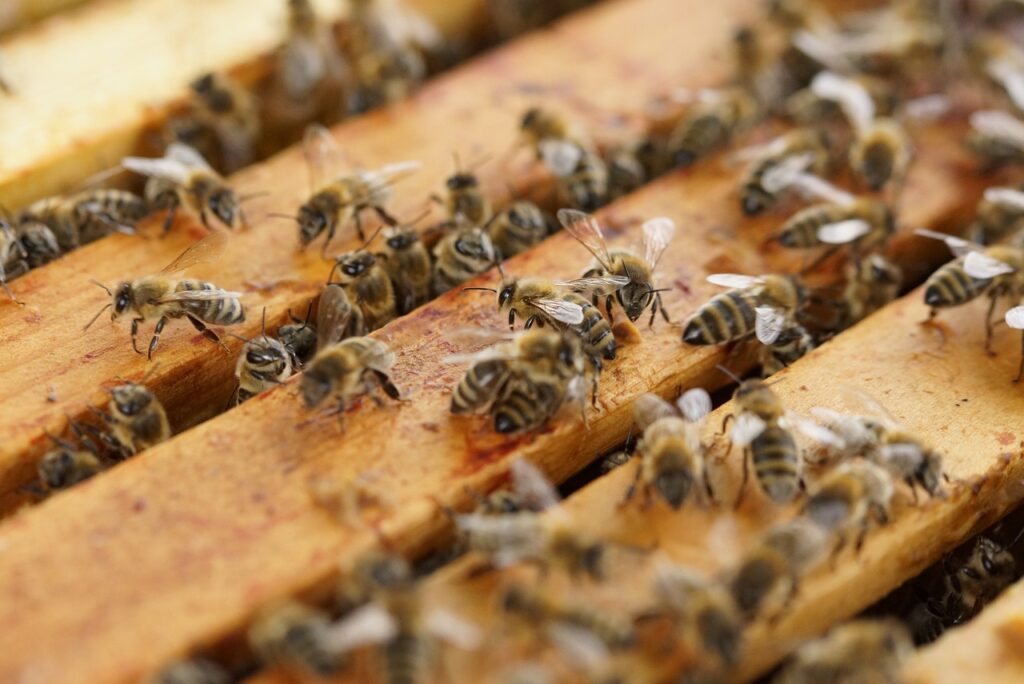Preserving Pollinators: The Role of Beehive Monitoring Systems in Safeguarding Biodiversity
Currently bee populations face numerous challenges due to habitat loss, pollution, and pesticide exposure. Beehive monitoring systems play a crucial role in safeguarding biodiversity by providing valuable insights and support for urban beekeepers. These systems offer several benefits:
Early Disease Detection: Beehive monitoring systems enable early detection of diseases and pests, allowing beekeepers to take prompt action to prevent the spread of infections within urban bee populations.
Pollution Monitoring: By tracking hive metrics such as hive weight, temperature, and bee activity, monitoring systems can help identify pollution hotspots in urban areas and mitigate risks to bee health.
Optimized Hive Management: Monitoring systems provide real-time data on hive conditions, enabling urban beekeepers to make informed decisions about hive management practices, leading to healthier and more productive bee colonies.
Enhanced Pollination: With accurate monitoring of bee activity and foraging patterns, beekeepers can optimize hive placement and promote efficient pollination in urban gardens, parks, and green spaces, thus contributing to overall biodiversity.
Environmental Education: Beehive monitoring systems serve as educational tools for urban residents, raising awareness about the importance of bees in urban ecosystems and promoting sustainable practices to support bee populations.
By utilizing beehive monitoring systems in urban environments, beekeepers, researchers, and conservationists can work together to protect bee populations, promote biodiversity, and create thriving urban ecosystems that benefit both humans and wildlife.

Urban beekeepers can benefit significantly from beehive monitoring systems, which offer a range of advantages for managing beehives in urban environments. Here are more details on how beehive monitoring systems help urban beekeepers:
Remote Monitoring: Beehive monitoring systems allow urban beekeepers to remotely monitor hive conditions, even when they are not physically present at the hive site. This feature is especially beneficial in urban settings where beekeepers may have multiple hives spread across different locations.
Early Warning Systems: These systems provide early warning alerts for various hive parameters, such as temperature fluctuations, unusual bee activity, or hive weight changes. Urban beekeepers can quickly respond to potential issues or threats, preventing hive failures and ensuring bee health.
Data-Driven Decision Making: By collecting and analyzing real-time hive data, urban beekeepers can make informed decisions about hive management practices. They can adjust feeding schedules, hive ventilation, or pest control strategies based on data insights, leading to improved hive health and productivity.
Optimized Resource Management: Beehive monitoring systems help urban beekeepers optimize resource management by tracking hive metrics such as honey stores, brood patterns, and foraging activity. This information guides beekeepers in efficiently allocating resources and ensuring the well-being of the colony.
Educational Tool: Monitoring systems serve as educational tools for urban beekeepers, offering insights into bee behavior, hive dynamics, and environmental factors impacting bee health. Beekeepers can learn from the data collected by the system and gain a deeper understanding of urban beekeeping practices.
Community Engagement: Beehive monitoring systems facilitate community engagement by sharing hive data and insights with local residents, schools, or conservation groups. Urban beekeepers can raise awareness about the importance of bees in urban ecosystems and collaborate on conservation efforts to support bee populations.
Environmental Impact Assessment: Urban beekeepers can use data collected by monitoring systems to assess the environmental impact of urban development, pollution, and landscaping practices on bee populations. This information can help advocate for sustainable urban planning and conservation measures to safeguard biodiversity.
Overall, beehive monitoring systems empower urban beekeepers with valuable tools, data, and insights to effectively manage beehives in urban environments, promote bee health, and contribute to biodiversity conservation efforts within city landscapes.



